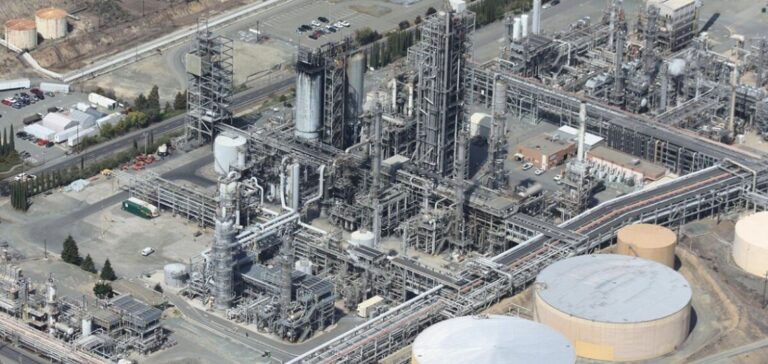Recent data from the U.S. Energy Information Administration (EIA) reveal a sharp drop in U.S. crude oil inventories, which fell by 4.6 million barrels in the week ending August 16.
This far exceeded market expectations, which were for a contraction of 2.2 million barrels.
This was due to the acceleration of operations at US refineries, with the utilization rate reaching 92.3%, compared with 91.5% the previous week.
This continued increase in refinery activity helped meet sustained demand for refined petroleum products.
Despite a 3% increase in net crude oil imports, the fall in inventories underscores the significant impact of increased refinery activity.
At the same time, US oil production rose slightly, reaching a record level of 13.4 million barrels per day, matching the peak seen at the beginning of August.
However, this increase in supply was not enough to offset the fall in inventories, confirming the robustness of demand.
Tensions on refined products
Volumes of refined products delivered to the domestic market remained strong, with a notable 1.6% rise for gasoline and a marked 9.6% increase for kerosene.
Despite these increases, gasoline inventories fell by 1.6 million barrels, below analysts’ forecasts for a larger reduction.
This mismatch between supply and demand underscores the complexity of the current market, where the dynamics of consumption are maintaining continuous pressure on available reserves.
The oil market reacted with some volatility to these announcements.
After a brief surge, prices stabilized, with a barrel of West Texas Intermediate (WTI) for October delivery holding steady at around 73.17 dollars.
This moderate reaction indicates that market players remain cautious in the face of geopolitical uncertainties and potential fluctuations in global demand.
Market outlook
Industry professionals are keeping a close eye on the evolution of inventories and production capacities, particularly as autumn approaches, a period traditionally marked by fluctuations in energy demand.
Geopolitical tensions, particularly in the Middle East, could also influence prices and storage strategies.
Against this backdrop, US refineries should continue to play a key role, maintaining high levels of activity to meet domestic market needs while navigating an uncertain global environment.






















